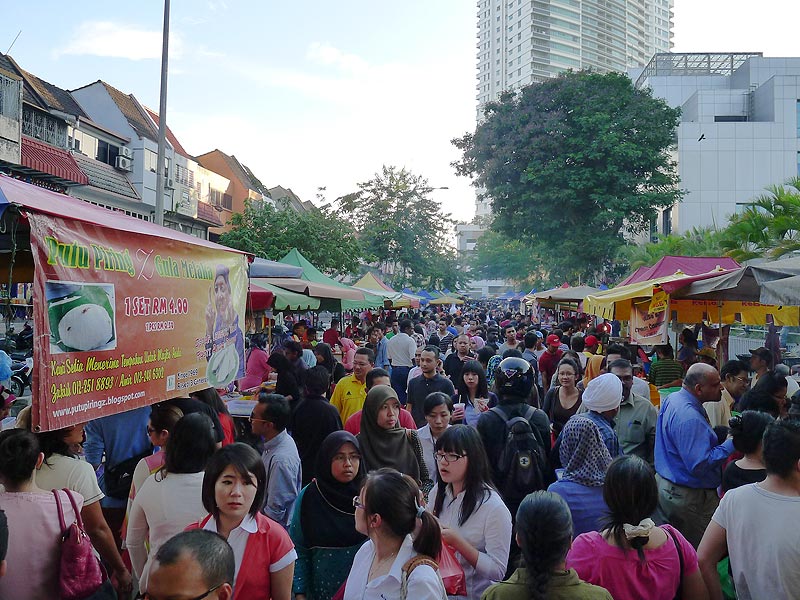KUALA LUMPUR, April 1 — Achieving social distancing will be nearly impossible at Ramadan bazaars, said medical specialists, urging the government to cancel these popular food markets amid the Covid-19 outbreak.
The Academy of Medicine of Malaysia (AMM) — which represents all medical specialists in Malaysia — said close contact would inevitably occur in parking areas, en-route, and between customers and vendors, after Federal Territories Minister Annuar Musa reportedly said Ramadan bazaars would be modified to prevent congestion at stalls.
“The premature easing of social distancing may potentially lead to a third wave of infections,” AMM said in a statement.
“The daily rate of new cases is currently still in triple digits (>120 per day), indicating ongoing community spread with unknown chains of transmission. A third wave will be a setback to any previous hard-earned gains since the enforcement of the Movement Control Order (MCO) on 18th of March 2020.”
Health authorities yesterday reported 140 new Covid-19 cases, making a total of 2,766 confirmed cases in Malaysia. Forty-three people, including an Indonesian national, have succumbed to the respiratory disease.
AMM instead proposed online Ramadan bazaars with delivery services during the Muslim fasting season, which starts later this month, to reduce infection risk and minimise the economic impact on small traders.
“The war against Covid-19 is far from over, and we will need to continue persevering in order to enjoy many more Ramadans to come.
The Galen Centre for Health and Social Policy also similarly urged the government to cancel Ramadan bazaars and congregational tarawih prayers.
“Even if the federal government is not forced to extend the MCO again, the end of April would be too soon to assume that the possibility of infection has been totally eliminated. It could be many weeks later before we can go back to what was normal,” said the Galen Centre.
The health think tank said any activity involving large numbers of people in close contact, where social distancing cannot be implemented reliably, should not be held until at least the end of the month, or even until the first two weeks of May.
“The Terengganu, Melaka and Negri Sembilan state governments have already made the bold and hard but right decision to not hold Ramadan bazaars this year to protect people in those states and prevent the possible spread of Covid-19. Hopefully, the other state governments and the federal government could also follow suit.”
Annuar clarified on Twitter earlier today that he has asked local councils in the Federal Territories to come up with recommendations on Ramadan bazaars, stressing that a decision would not be made unilaterally as the Ministry of Health (MOH) and the National Security Council (NSC) would be consulted.
“We have not make [sic] a decision,” Annuar tweeted.
Health director-general Dr Noor Hisham Abdullah said yesterday that Ramadan bazaars, like wet markets still operating today, could be allowed if MOH’s standard operating procedures (SOPs) were followed, like social distancing and crowd control.








